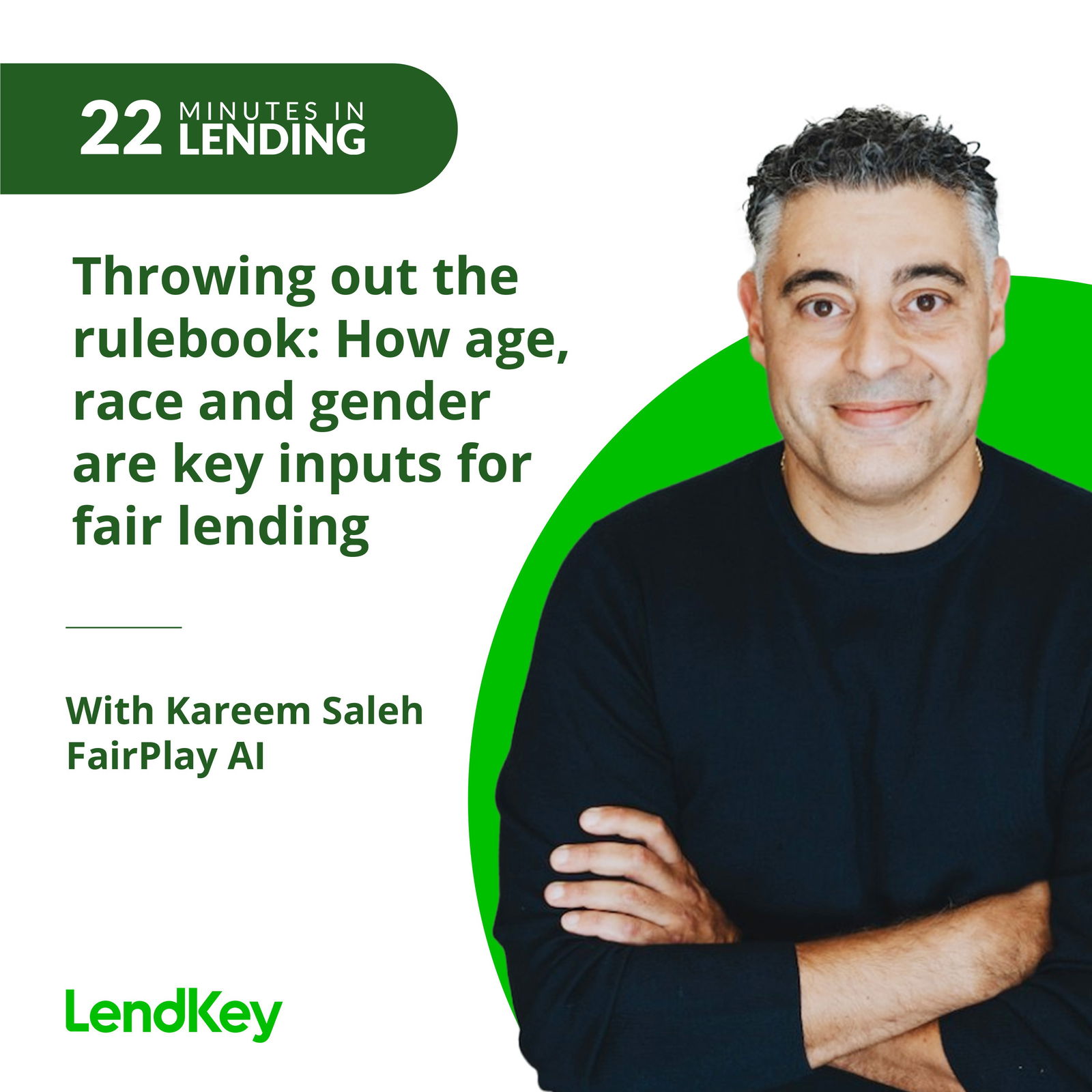
Episode description
In this first of two episodes with Kareem Saleh, Founder and CEO of FairPlay AI, host Vince Passione takes a deep dive into the world of AI underwriting: How it’s been used in the past, how it has fallen short of its potential to remove bias in lending decisioning, and how the pioneering concept of Fairness-as-a-Service may yet revolutionize the AI lending game.
Key takeaways:
0:00 Intro
2:06 How the murder of George Floyd compelled Kareem Saleh to look for ways he could more effectively change the system he operates in, and increase fairness for everyone.
3:08 Machine learning is capable of learning, but also of learning the wrong things.
3:55 Financial services regulators have clearly defined definitions of “fairness”: One focusing on disparate treatment, the other focusing on disparate impact.
5:18 One of the core challenges (and/or failures to-date) for using AI to mitigate bias is that it can only learn from the data it is trained on; and that typically over-represents certain populations.
8:49 Traditional logistic regression models don’t always work because they assume credit behaviors are linear. In reality, an individual’s financial behaviors are non-linear.
9:31 Unfairness can be born out of AI-driven models when seemingly independent variables interact with one another in a way that most humans wouldn’t interpret, but machines do.
10:01 Underwriting regulation and compliance hasn’t yet caught up with the technological capabilities of our AI-driven world.
11:56 Why monitoring an AI model’s fairness trends is critical.
14:40 Examples of ways seemingly disparate or arbitrary variables can interact with one another to bias an outcome–and how personal attributes are still being leveraged to a greater or lesser extent in decisioning models.
19:53 Concerns vs. regulatory comfort with using personal attributes like age and gender in decisioning.
22:44 The privacy implications, particularly in light of 1033, and how finding a way to share your personal information in some way–even if it’s just through the census–will help contribute to a fairer credit system.
Resources Mentioned:
- https://fairplay.ai/ Fairplay AI
- https://www.fdic.gov/system/files/2024-06/iv-1-1.pdf Fair lending rules and regulations
- https://www.justice.gov/crt/equal-credit-opportunity-act-3 Equal Credit Opportunity Act
- https://www.justice.gov/crt/fair-housing-act-1 Fair Housing Act
- https://www.lendkey.com/podcast/modern-credit-reporting-can-old-tech-handle-new-data/ Christian Widhalm, Bloom Credit, episode
Thanks for listening to the 22 Minutes in Lending podcast. If you enjoyed this episode, please leave a 5-star review to help get the word out about the show and be sure to subscribe so you never miss another insightful conversation.
#CreditUnions #FairLending #AI #Lending